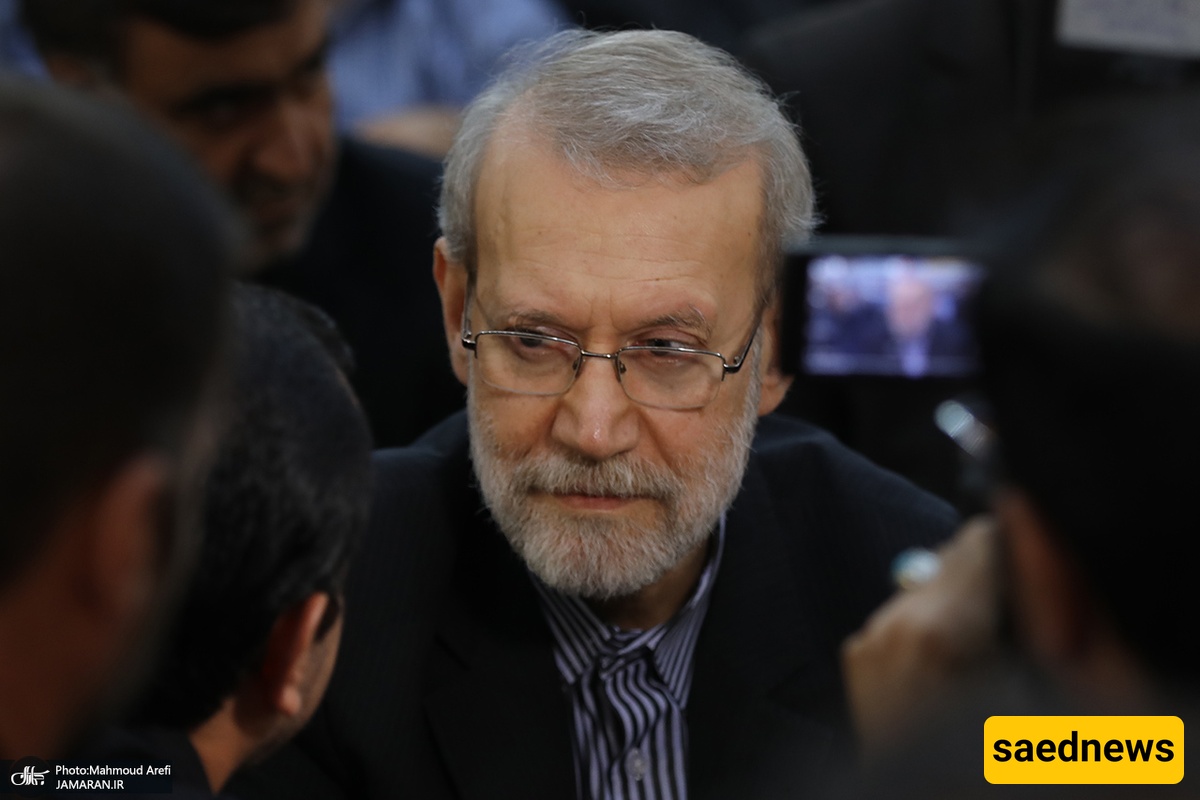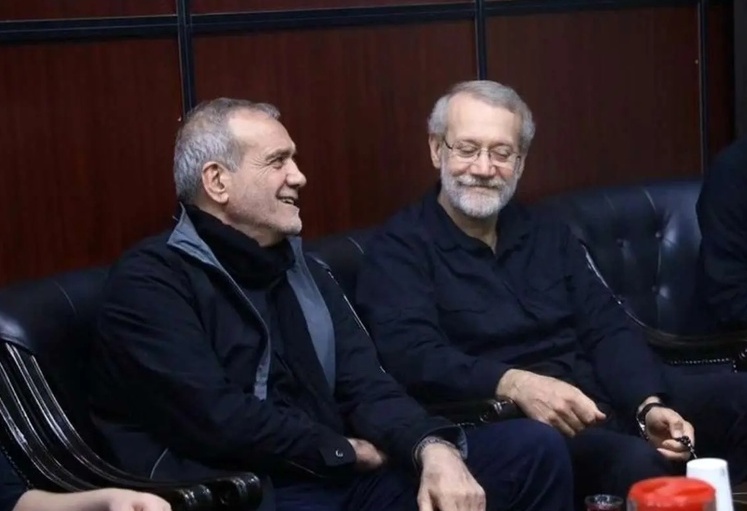SAEDNEWS: Ali Larijani, nearly two decades after resigning as Secretary of Iran’s Supreme National Security Council, has been reappointed to the position amid shifting political dynamics. This appointment marks a significant return for Larijani, reflecting his enduring influence despite electoral setbacks and evolving domestic politics.

According to Saed News, Ali Larijani, nearly two decades after resigning from the position of Secretary of the Supreme National Security Council, was reappointed to this role yesterday; two decades full of ups and downs both for Larijani and the internal politics of the Islamic Republic. His appointment as Secretary of the Supreme National Security Council was confirmed by Masoud Pezeshkian after days of speculation and analysis. This appointment is seen as a form of Larijani’s return to prominence.

Larijani resigned from this position in 2007 due to an inability to work effectively with the then-President Mahmoud Ahmadinejad. Their disagreements went beyond a simple resignation in the following years. Now, after three terms as Speaker of Parliament and two disqualifications in presidential elections, Larijani, who since last year has regained a level of political credibility despite efforts by rivals to exclude him, has been appointed Secretary of the Supreme National Security Council. This is the same council where during his previous tenure he coined the phrase “slippery negotiations and candy-taking” to describe diplomatic talks.
However, neither the nature of current negotiations with the West nor Larijani himself is the same as in the past. Early after Pezeshkian’s victory, rumors circulated about Larijani’s potential appointment, which he initially denied in an interview with Khabar Online. But now, a new era has begun for the country, and the Supreme National Security Council is expected to face challenging days ahead.
Since the early 1990s, Larijani has held various responsibilities, reflecting a political approach that evolved significantly over the years. From replacing Mohammad Khatami as Culture Minister (1991-1993), to leading the Islamic Republic of Iran Broadcasting (IRIB) for ten years until 2004 — a period marked by controversies such as the broadcasting of the “Identity” program, which Larijani later distanced himself from and partially apologized for during the 2021 presidential campaign.
Another controversial program during his IRIB tenure was “Cheragh,” which accused the Khatami government of involvement in the chain murders. Larijani claimed no knowledge of this program’s themes during the 2005 elections. Despite these criticisms, his political behavior shifted over the years, especially in the 2000s when he began to distance himself from Ahmadinejad.
After serving as Secretary of the Supreme National Security Council starting in 2005, he resigned two years later following conflicts with Ahmadinejad, then entered Parliament where he remained Speaker for 12 years, a tenure marked by fierce political battles, including over the Iran nuclear deal (JCPOA).
His long parliamentary leadership gave him a distinct political identity, but after two consecutive presidential election disqualifications, Larijani’s political approach appeared to transform. His withdrawal from the 11th parliamentary election was interpreted by some as an end to his political career, while others saw it as preparation for a presidential run, which ended in his disqualification in both 2017 and 2021.
Larijani’s early 2024 presidential registration was accompanied by his usual political wit, including a viral image hinting at a route from the Ministry of Interior to the Presidential Palace via ride-sharing taxis. Despite his charm, the Guardian Council disqualified him again, citing his parliamentary record, family affairs, and procedural issues as reasons.
This political sidelining did not end Larijani’s influence. Following his appointment last year as advisor to the Supreme Leader for meetings with Bashar al-Assad, his role shifted to behind-the-scenes political maneuvering. His diplomatic visits to Lebanon and Syria in 2024 further emphasized his continued importance within the regime’s strategic circles.
His recent presence at prominent revolutionary gatherings signals a redirection of some revolutionary forces under his influence. Yesterday’s appointment finalized this transition: Larijani was not removed but elevated to a higher tier of political engagement, one that is insulated from public criticism and controlled by longstanding trust within the regime’s core institutions.
Despite distancing himself from the hardline principlist camp in recent years, Larijani’s roots in Iran’s conservative right remain. His reappointment signals continuity and change within the Supreme National Security Council, alongside figures close to Saeed Jalili, confirming a reshaped security landscape.
In summary, Larijani’s navigation through electoral disqualifications and political setbacks to reach a pivotal security role reflects the complex interplay of loyalty, pragmatism, and resilience in Iran’s political system.

